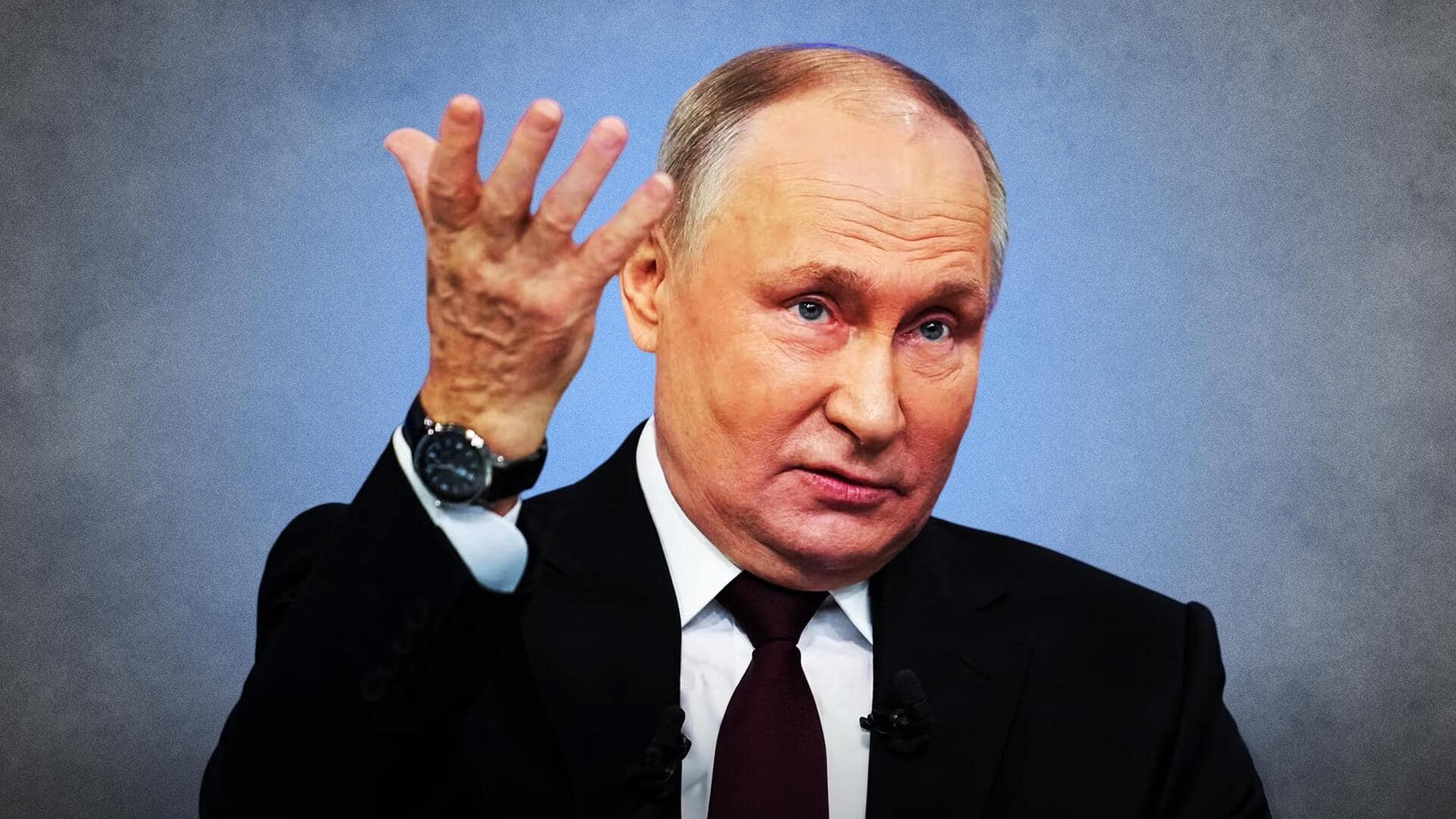
Explained: Russian presidential polls begin with Putin's expected victory
What's the story
Russian citizens, in millions, are voting in an election that is expected to give Vladimir Putin at least six more years in power. Putin's electoral triumph would mark him as the longest-serving Kremlin leader since Josef Stalin, with results expected shortly after polls close on Sunday. The new leader, however, won't be inaugurated until May. Notably, 112.3 million citizens are eligible to vote, with 1.9 million residing abroad and 12,000 at Baikonur, a cosmodrome rented by Russia in Kazakhstan.
Putin's opposition
Who are the opposition candidates
Despite the expected poll results, the Russian Federation maintains a veneer of pluralism and has given three opposition leaders the opportunity to challenge Putin. The opposition candidates are Nikolai Kharitonov (75), a senior member of the Communist Party and a deputy of the State Duma; Vladislav Davankov (40), a State Duma deputy from the New People party and the youngest candidate running; and Leonid Slutsky (56), chairman of the right-wing Liberal Democratic Party of Russia (LDPR).
Electoral race
Many firsts for the Russian Federation
The election marks the first time remote online voting has been made available in a Russian presidential race. For the first time, voting will take place in parts of Ukraine now under Russian control, including Donbas and Novorossia, allowing their residents to participate in the Russian presidential elections. Interestingly, as Russian troops advance in Ukraine, two anti-war candidates—Boris Nadezhdin and Yekaterina Duntsova—were disqualified from participating in the polls.
Putin's supporters
What do Putin's supporters say
Putin—a former KGB lieutenant colonel—was appointed acting president by Boris Yeltsin on the last day of 1999. He subsequently won the 2000 and 2004 presidential polls, consolidating his position in Russian politics. Despite Western allegations of Putin being a war criminal and dictator, he enjoys an 85% approval rating domestically. Supporters of the 71-year-old credit him for halting the spiral of decline that peaked with the 1991 collapse of the Soviet Union.
Constitutional Amendments
Constitutional amendments extend Putin's rule
Originally, the 1993 Russian constitution limited presidents to two consecutive four-year terms. However, the 2008 amendments extended the term to six years, and the 2020 amendments reset Putin's presidential term count to zero from 2024, potentially allowing him to stay in power until 2036. Putin has already served as president longer than any other Russian leader since Josef Stalin. In past elections, his winning percentages ranged from 53.0% to 76.7%.
Observers' concerns
Observers' concerns about Russian elections
Meanwhile, the Organization for Security and Co-operation in Europe's Office for Democratic Institutions and Human Rights (ODIHR) expressed disappointment that Russia did not invite OSCE observers to the election. "It is very unfortunate that democratic backsliding has reached such a critical point that we cannot be on the ground to observe this year," Pia Kauma, President of the OSCE Parliamentary Assembly said.